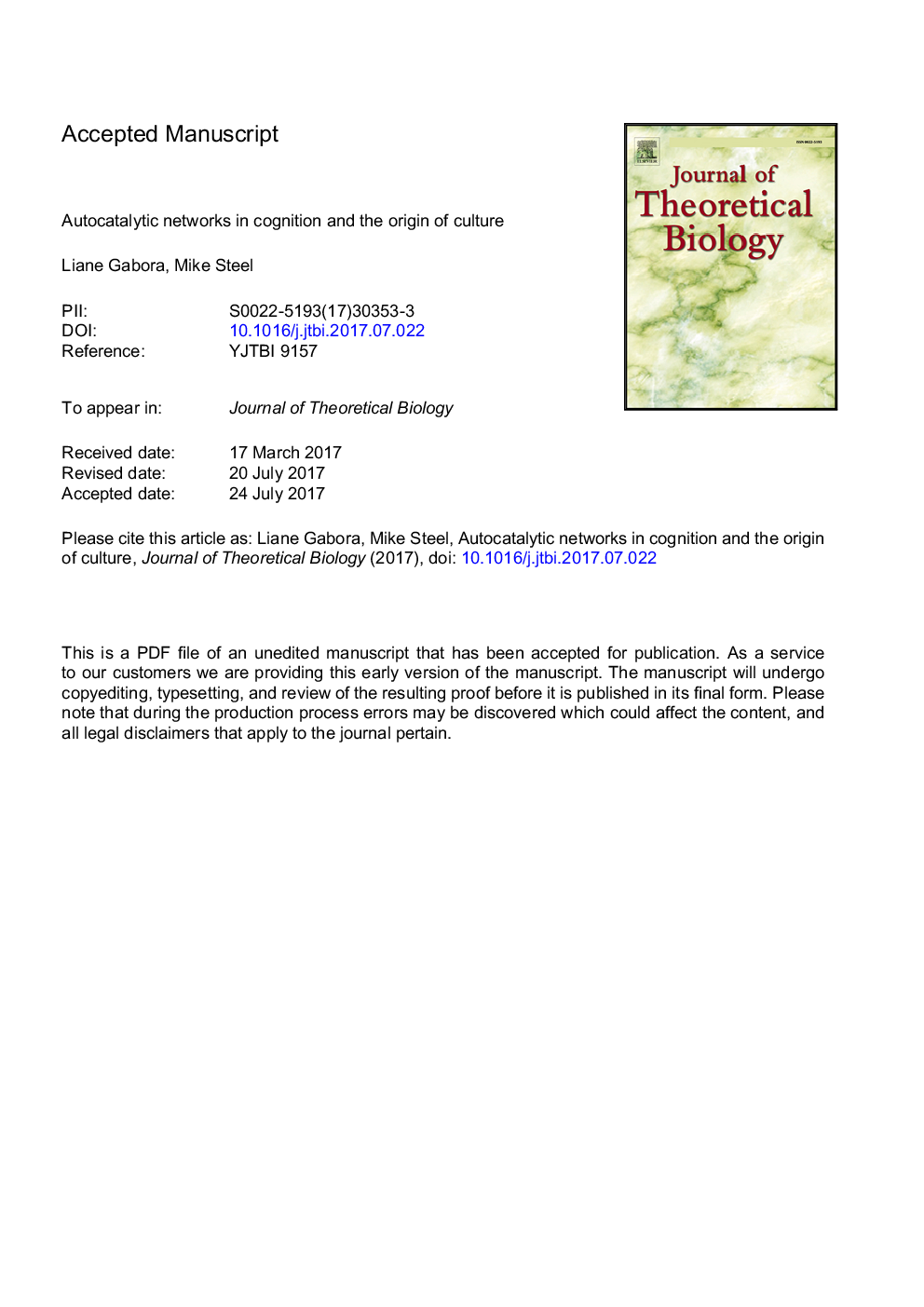ترجمه فارسی عنوان مقاله
شبکه های اتکاتالیستی در شناخت و منشاء فرهنگ
عنوان انگلیسی
Autocatalytic networks in cognition and the origin of culture
| کد مقاله | سال انتشار | تعداد صفحات مقاله انگلیسی |
|---|---|---|
| 131138 | 2017 | 30 صفحه PDF |
منبع

Publisher : Elsevier - Science Direct (الزویر - ساینس دایرکت)
Journal : Journal of Theoretical Biology, Volume 431, 27 October 2017, Pages 87-95

